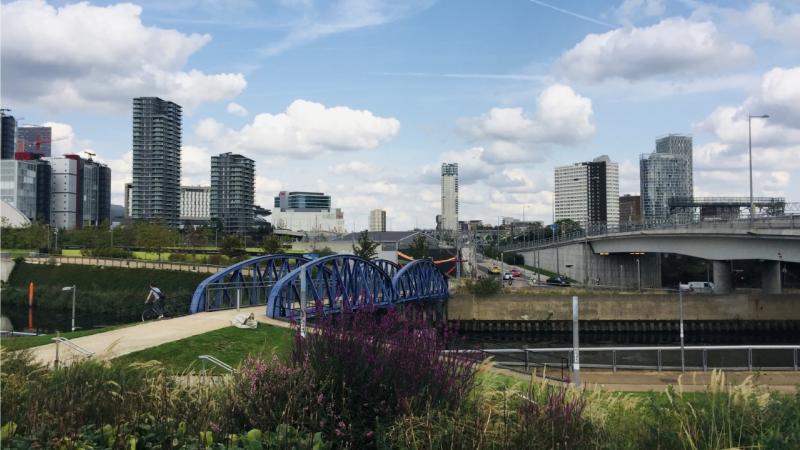On Friday 13 May, Westminster academics from the subject areas of Architecture, Planning and Urban design hosted a symposium titled London Lab/Global Hub to launch the Emerging Territories Research Group, one of five research groups recently established at the University’s School of Architecture + Cities.

The new research group brings together scholars and PhD students at the School of Architecture + Cities. Their aim is to showcase research at the interface between London-based explorative practices and globally relevant projects.
By doing this, Emerging Territories hopes to advance conversations about knowledge exchange and collaborations within the group and with others in the School, across the University and outwards. The symposium was chaired by the two co-convenors of the Emerging Territories Research Group, by Dr Krystallia Kamvasinou, Senior Lecturer in Planning, Urban Design and Architecture, and by Dr Giulio Verdini, Reader in Planning.
It posed the critical questions on how Urban and Architectural research has been confronted in recent years with new challenges affecting cities and the built environment. Such challenges include the unexpected outbreak of the COVID-19 pandemic, the increasing evidence of the tangible impact of climate change and the rising tensions among nation states in a changing global scenario.
Two keynote talks were held by Westminster professors to define the boundaries of these broad challenges. Professor Lindsay Bremner, Director of Research at the School of Architecture and Cities, discussed The Challenge of Climate Emergency, and Michael Neuman, Professor of Sustainable Urbanism, explored The Challenge of Sustainable Cities.
The morning session focused on Climate, Health and Wellbeing, with Dr Krystallia Kamvasinou chartering the links between her research on terrain vague, post-industrial landscapes, temporary urbanism and greenspace-related wellbeing during COVID-19. The afternoon session focused on Scales, Diversity and Inclusion, specifically the urban-rural nexus and bottom-up/top-down intersections. Here, Dr Giulio Verdini charted his long-lasting research work around urban-rural synergies, linked to rural heritage conservation and community engagement in the context of China and the Global South more generally.
The day concluded with a discussion noting the challenge of translating research, methodologies and theory to different cultural and geographical contexts, and the increasingly important role of academics providing a voice for, and co-designing research with communities.
Talking about the event, Professor Lindsay Bremner said: “It was a fantastic, inspiring day that brought together people who have not even spoken to each other before, laid out people's agendas, exposed weaknesses, and provided a space for reflection and future conversations. A productive day that we will collectively think about how to take forward.”
Bill Erickson, former Assistant Head of the School of Architecture + Cities, said: “This event was not only stimulating but very helpful in understanding the colleagues’ backstory and present activity. It is clear Emerging Territories will emerge not only as a field of enquiry but as a genuine community of scholars, researchers, students working in real places and facing urgent issues.”
Find out more about the School of Architecture + Cities.


